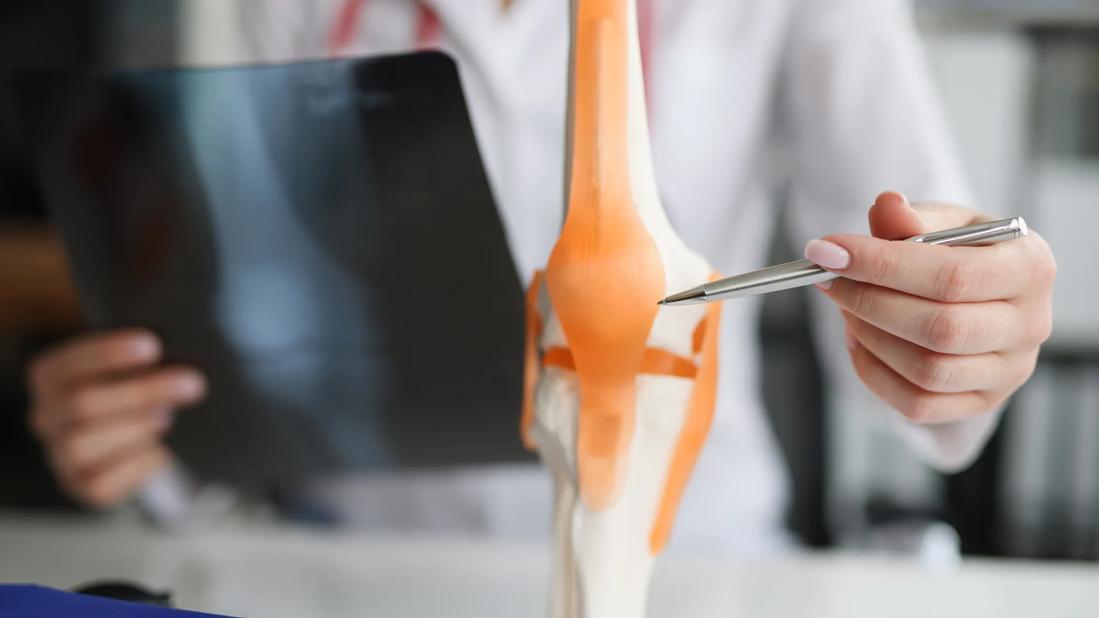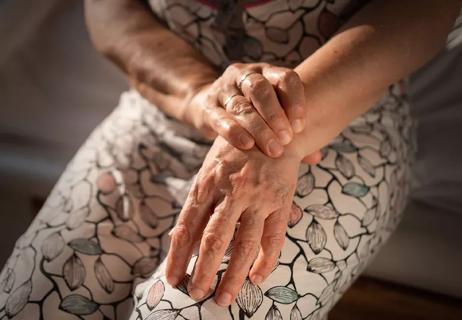The process usually starts with your primary care provider, who may refer you to a rheumatologist or orthopaedist

One day you’re doing the same activity you’ve done thousands of times before and then … well, you feel unusually stiff and sore. Maybe it’s a hand or wrist that hurts. Perhaps a knee or ankle is moving like a rusty hinge.
Advertisement
Cleveland Clinic is a non-profit academic medical center. Advertising on our site helps support our mission. We do not endorse non-Cleveland Clinic products or services. Policy
Whatever joint on your body is the source of pain, you begin to wonder whether arthritis is to blame. But what kind of doctor should you see to find out whether that’s the case and for treatment?
Let’s look at some of your options with orthopaedist Michael Star, MD.
There are certain types of doctors specifically associated with arthritis care. (We’re looking at you, rheumatologists.) But those aren’t the only medical professionals involved in treating the joint condition.
Different experts may be involved at different points in the process, explains Dr. Star.
The first doctor you’ll want to see to talk about your achy joints should be a familiar face.
Primary care doctors are the best place to start when it comes to arthritis care, says Dr. Star. To diagnose arthritis, they’ll probably conduct a physical exam and test the range of motion in your joints. They may order an X-ray to look for joint damage, too.
Osteoarthritis is the most common form of arthritis. It’s age-related wear of the cartilage in your joints. If your healthcare provider suspects you’re in the early stages of osteoarthritis, they’ll start you on a treatment plan to relieve the pain and symptoms. That could include:
Advertisement
Many times, this course of treatment will be enough to keep you moving through life pain-free. But if symptoms don’t improve or they get worse, your primary care doctor may recommend seeing a specialist.
Arthritis management and joint care are points of focus for two specific types of doctors ― rheumatologists and orthopaedists. Let’s look at each.
Rheumatologists specialize in treating arthritis, as well as other diseases and conditions affecting joints, muscles, bones and skin. They work with osteoarthritis, as well as rheumatoid arthritis, psoriatic arthritis or other types on inflammatory arthritis.
If you’re sent to a rheumatologist, there’s a chance you have a form of arthritis other than osteoarthritis, says Dr. Star.
Rheumatologists will work with you to create an individualized treatment plan to ease pain and improve joint function while also slowing the progression of arthritis. They may recommend forms of medication, injections and physical therapy.
When arthritis hits a point where surgery may be needed, you’ll probably end up talking to an orthopaedist. They treat various injuries and diseases of the musculoskeletal system, including osteoarthritis.
For arthritis that gets worse despite treatment, an orthopaedist can perform injections of corticosteroids (powerful anti-inflammatory drugs) or hyaluronic acid (a substance that lubricates joints).
They can also do surgery (such as a joint replacement) in cases of severe arthritis that causes significant pain and seriously limits daily life.
Sometimes, the specialist you see will be dictated by the location of the problem. If you’re being treated for osteoarthritis of the spine, for instance, you may be directed to someone at a spine center before starting on a traditional treatment such as physical therapy and exercise.
Whichever doctor you see, your care team will help address your arthritis pain and offer treatment options to help you get closer to feeling better.
Advertisement
Learn more about our editorial process.
Advertisement

Research doesn’t show any benefits to wearing copper bracelets — but your experience may vary

Yes, your genetic makeup may increase your risk of developing arthritis, but other factors like age and weight can play a role, too

Both types of therapy work differently, but they can both alleviate symptoms — especially when you alternate methods

Exercising can actually improve arthritis symptoms — and low-impact exercises are best

Simple exercises like tendon glides and finger lifts can have a big impact

Research is inconclusive, so don’t stop eating tomatoes, potatoes and peppers just yet

Adding these simple foods to your diet can make a big difference

Here's how to make yourself more comfortable behind the wheel

Wearing a scarf, adjusting your outdoor activities and following your asthma treatment plan can help limit breathing problems

Your diet in the weeks, days and hours ahead of your race can power you to the finish line

When someone guilt trips you, they’re using emotionally manipulative behavior to try to get you to act a certain way